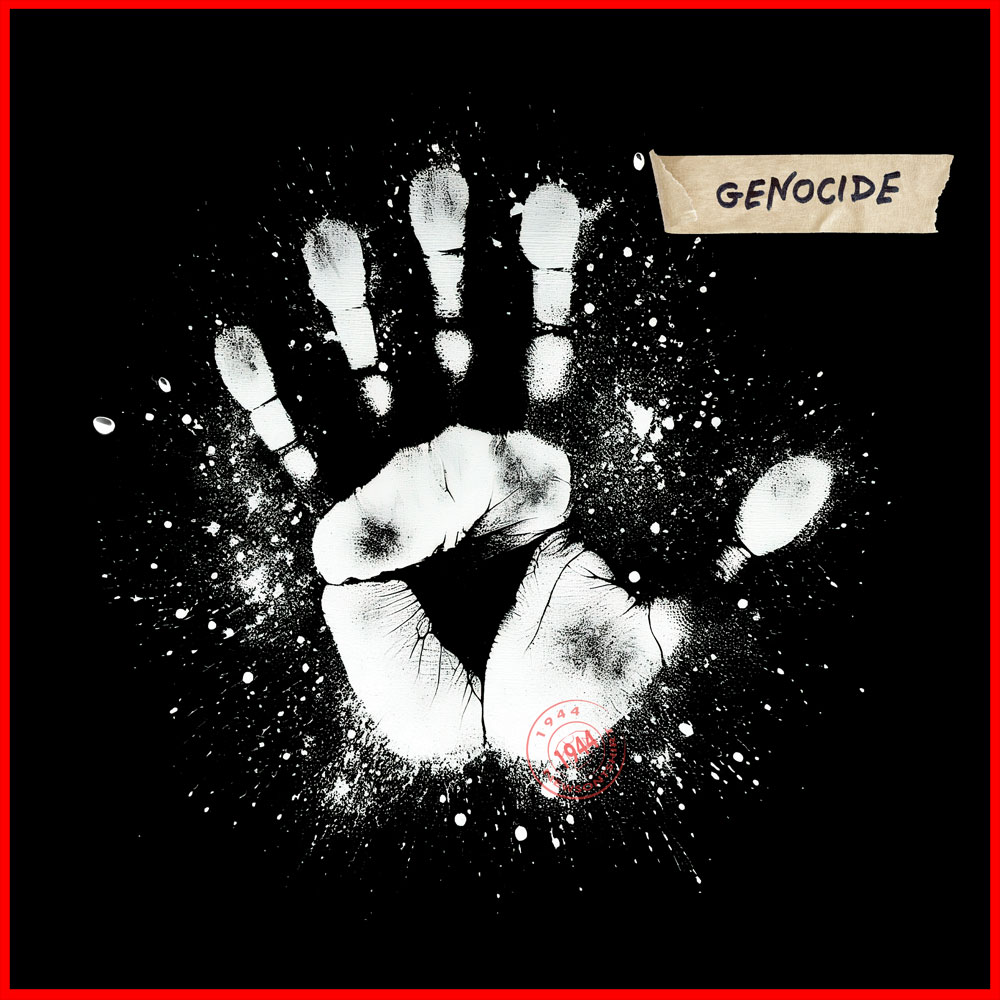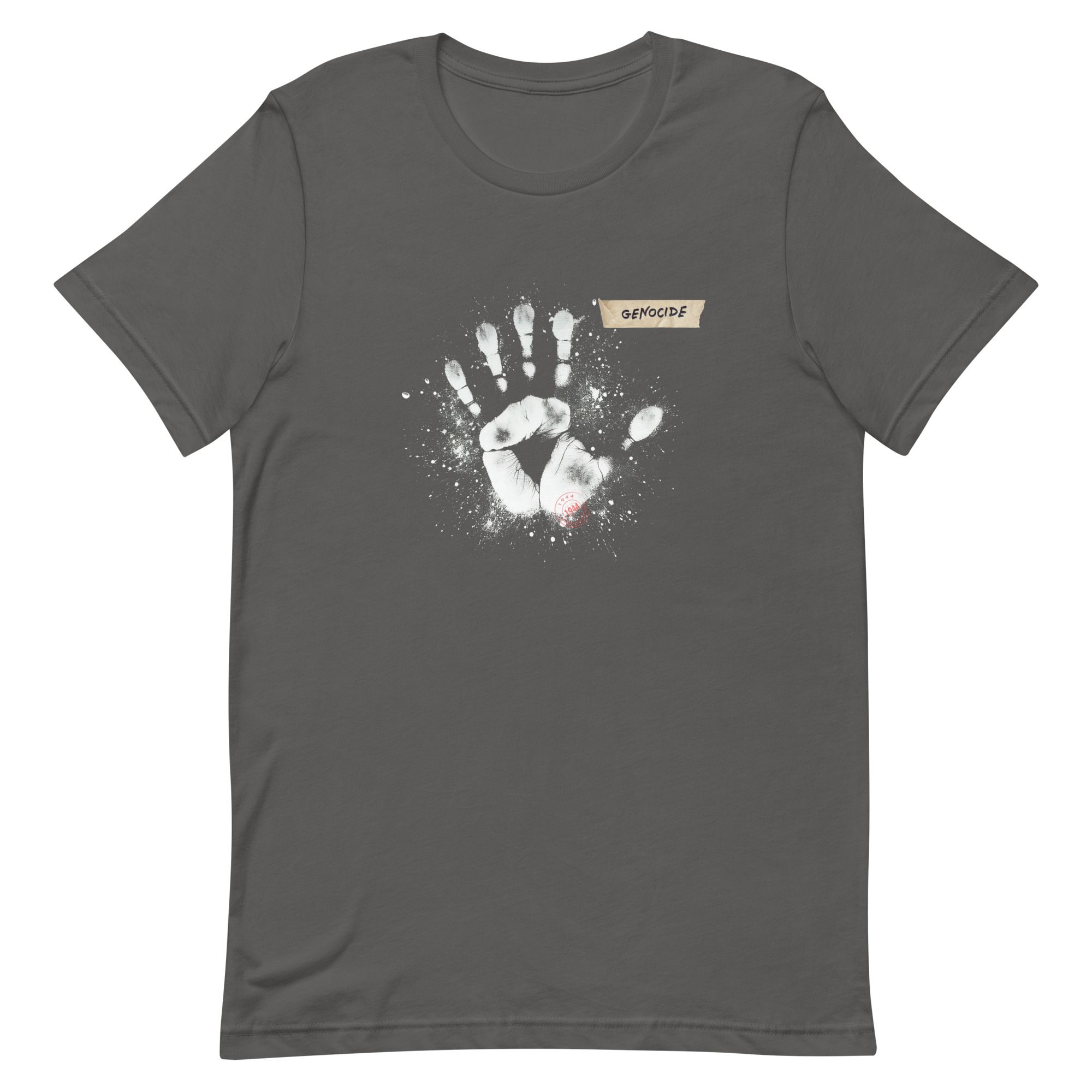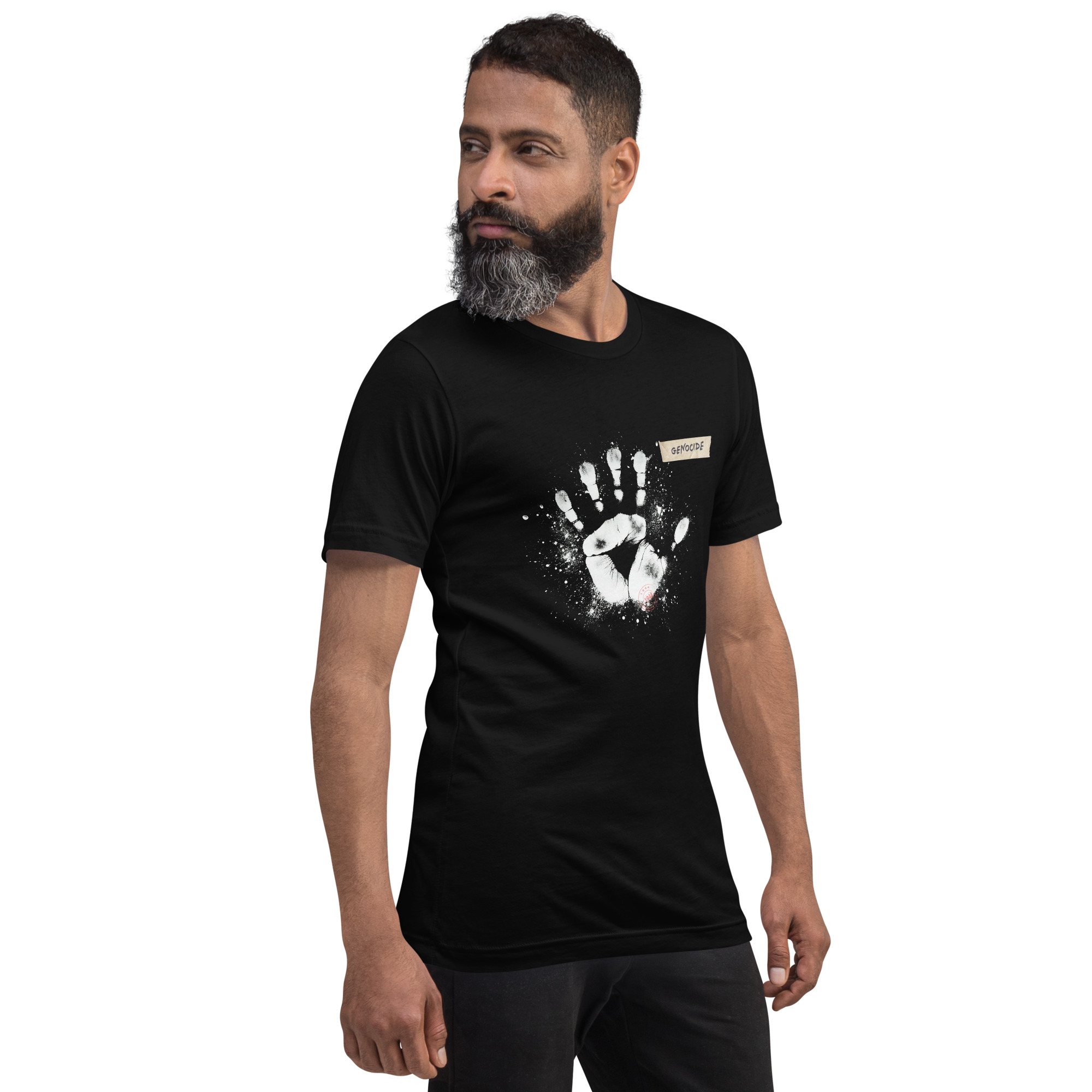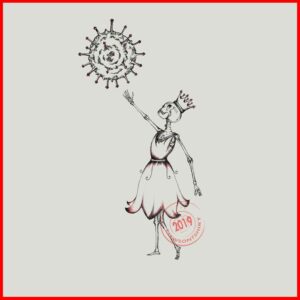Description
The World Must Act Now to Stop Genocide
Putting an End to the Horror of Genocide:
Genocide is one of the most abhorrent atrocities humanity can inflict upon itself. It involves the systematic killing or causing of serious bodily or mental harm to members of a national, ethnic, racial or religious group with the intent to destroy that group in whole or in part. The statistics surrounding genocide are nothing short of staggering – an estimated 60 million people were killed in genocides in the 20th century alone.
The term “genocide” was coined in 1944 by Polish-Jewish lawyer Raphäel Lemkin, combining the Greek word “genos” (race) with the Latin word “cidio” (killing), in response to the horrors of World War II. It has since become part of legal and common parlance to describe this heinous crime against humanity.
Despite the world’s pledge of “never again” after the Holocaust, genocide continues to occur in parts of the world today. The Rohingya genocide in Myanmar, the genocide in Darfur, the Yazidis genocide in Iraq, the Palestinians genocide in Gaza are just some recent examples of catastrophic mass killings motivated by ethnic, religious and cultural hatred. This grave human rights issue demands global attention and concrete action from nations and individuals alike.
This guide explores genocide’s history, warning signs, prevention strategies, and how YOU can make a difference. It’s time to end these horrific acts.
Only by understanding genocide in all its horror can we hope to one day eliminate it forever.
Understanding the Devastating Toll of Genocide:
To fully grasp the urgency of stopping genocide, it is critical to understand the sheer devastation these mass atrocities have inflicted throughout history. Some of the most notorious and deadly genocides include:
The Holocaust (1941-1945): Carried out by Nazi Germany, this genocide resulted in the systematic murder of 6 million Jewish people across German-occupied Europe. Millions more from other persecuted groups like Romani, Slavs, LGBTQ people and those with disabilities were also killed in what is arguably the most well-known genocide in modern history.
Rwandan Genocide (1994): In just 100 days, over 800,000 people were slaughtered in the small East African nation of Rwanda as members of the Hutu ethnic majority targeted the minority Tutsi population. The horrific speed and scale of the killings, which included countless acts of machete hacking, made this one of the most intense genocides ever witnessed.
Armenian Genocide (1915-1923): The systematic extermination of 1.5 million ethnic Armenians by the Ottoman Empire through massacre, forced deportations, and denial of food and medical services is considered one of the first modern cases of genocide. It set a devastatingly cruel precedent for future genocidal regimes.
The Genocide in Darfur, Sudan (2003-Present): Over 300,000 civilians have been killed in this protracted genocide as the Sudanese government has targeted ethnic groups like the Fur, Massalit and Zagawa people with widespread killing, rape as a weapon of war, and displacement from their homes.
You can also see in an up-to-date way those that are occurring today : https://www.genocidewatch.com
Beyond the staggering death tolls, genocide has had profound ripple effects across generations. Entire cultures, languages and ethnic identities have been systematically erased and permanently fractured. Survivors carry immense psychological trauma from witnessing incomprehensible violence and loss of loved ones. The generational impacts on the human psyche cannot be overstated.
By understanding the sheer scale of death, suffering and cultural decimation caused by genocide, the world can perhaps find greater resolve to ensure such horrors are never allowed to occur again on any population. The alternative is to be doomed to witness more of humanity’s darkest chapters unfold.
Recognizing the Early Warning Signs of Genocide:
While genocide may seem like an unfathomable act, tragically it follows a predictable pattern of escalating discrimination, dehumanization and violence against a targeted group. Being able to recognise the early warning signs is crucial for prompting swift intervention to prevent genocide before it begins.
Some of the major early warning signs of potential genocide include:
Increased Hate Speech and Propaganda: Regimes looking to perpetrate genocide often start by demonising the target group through slurs, conspiracy theories and biased media rhetoric that paints them as dangerous outsiders. This lays the groundwork for turning the public against them.
Discriminatory Laws and Policies: New laws and government rules that systematically discriminate against and oppress a particular group based on ethnicity, religion or race are clear red flags. Examples include segregation, curfews, registration requirements, travel bans and more.
Militarization and Weapons Stockpiling: The build-up of arms and ammunition coupled with increased military presence and aggression focused on the targeted group is an ominous sign that mass violence could follow.
Escalating Hate Crimes and Genocide Incitement: As hate speech intensifies, physical attacks, property destruction, forced displacement and public calls for violence against the group often occur in escalating waves that can culminate in all-out genocide if left unchecked.
It is critical that the global community does not turn a “blind eye” when these types of warning signs begin emerging against. Too often in history, the failure of leaders and ordinary citizens to recognise or speak out against these disturbing patterns has allowed the crimes of genocide to follow.
Effective Strategies to Prevent and Stop Genocide
Early warning signs are key, but prevention plans are just as important. Working together, the world can defuse tensions and stop genocides before they escalate.
Some key strategies the world can employ to stop genocide include:
Economic Sanctions and Trade Embargoes: Imposing tough economic penalties and severing trade relations with regimes and groups accused of committing or inciting genocide can cut off critical resources fuelling the violence. This can pressure perpetrators to change course through economic isolation.
Military Intervention and Peacekeeping Forces: When genocide erupts, the international community may need to consider a coordinated military response with well-equipped peacekeeping forces and clearly defined rules of engagement that authorise force as a last resort. This intervention’s primary objective would be to halt the violence and safeguard vulnerable populations.
Working Through International Laws and the UN: Leveraging international legal bodies like the International Criminal Court and the United Nations to officially rule that genocide is occurring can build a case for lawful intervention. UN peacekeeping missions can also monitor and report on human rights violations.
Increasing Humanitarian Aid and Safe Passage: Ensuring that ample food, water, medical aid and temporary asylum can reach those fleeing genocide is crucial. Safe corridors for escape and UN-protected camps help minimize casualties.
Empowering and Protecting Vulnerable Groups: Long-term investments in education, economic opportunities and civil rights for at-risk minority groups can help prevent the poverty, marginalisation and hopelessness that allows genocide to take root.
Of course, any of these measures requires cooperative global leadership, strategic coordination and a true commitment from nations to uphold the “never again” principle when it comes to genocide. But history has shown that decisive, unified action can help de-escalate and shut down genocidal campaigns before they become unstoppable.
The Role Individuals Can Play to Stop Genocide:
While governments and international bodies are essential for leading coordinated efforts to prevent and stop genocide, individuals also have immense power to raise awareness and demand action on this critical human rights issue.
Some powerful ways that ordinary citizens worldwide can contribute to the fight against genocide include:
Speaking Out Against Hate Speech and Discrimination: Challenging dehumanising rhetoric, racism, and xenophobia wherever it occurs helps prevent the normalisation of ideologies that can spiral into violence and genocide. Using your voice to denounce hate lays the groundwork for a more just, tolerant society.
Pressuring Political Leaders Through Activism and Awareness Campaigns: Organising protests, writing elected officials, pushing for media coverage, and fostering activism movements around preventing genocide can compel political leaders to pursue more aggressive policies and interventions.
Donating to NGOs and Advocacy Groups: Providing financial support to non-profit groups like Genocide Watch, the Auschwitz Institute, and United to End Genocide directly aids their genocide prevention initiatives through monitoring, education and aid.
Learning From Genocide Survivors and Amplifying Their Voices: Listening to and sharing the firsthand accounts of those who endured the trauma of genocide humanizes the incomprehensible horror and reminds the world of the need for action. Their stories are among the most powerful tools to spur change.
Reporting Signs of Potential Genocide Developing: If you witness the warning signs – hate speech, discriminatory policies, violence targeting groups – reporting them to advocacy groups and authorities can help draw critical early attention before escalation.
Each individual taking these types of actions creates a powerful collective voice that leaders cannot ignore. History has shown that consistent public pressure and grassroots movements have been pivotal in prompting intervention to halt genocides in progress. Every citizen of the world has a moral imperative to join this urgent cause.
Upholding “Never Again” – A United Global Effort:
The solemn vow of “never again” in the aftermath of the Holocaust’s unparalleled horrors was a resolute pledge from the world’s nations to never allow such a genocidal atrocity to occur in the future. Yet in the decades since, genocide has continued to devastate populations in Cambodia, Rwanda, Bosnia, Congo, Darfur, Gaza and many other places around the globe.
Clearly, the grand principle of “never again” has fallen severely short due to failures of political will, geopolitical inaction, and a lack of unified global leadership to decisively prevent and stop genocide whenever and wherever its warning signs begin to emerge.
To truly uphold the “never again” promise and put an end to genocide once and for all will require:
- World leaders must develop and enforce clear policies with concrete criteria to trigger intervention in potential genocide situations.
- Global accountability measures like sanctions, embargoes and prosecution via organisations like the International Criminal Court for regimes and perpetrator groups that violate genocide conventions.
- Proactive strategies beyond just military intervention, such as preventative deployment of armed peacekeeping forces during high-risk periods and providing more resources for conflict resolution.
- Genocide prevention being a core part of school curriculums to promote awareness and activism against this crime in future generations.
- A genuine universal commitment from nations to prioritize humanitarian values over economic interests and political expediencies when confronting genocide.
Only through a sweeping re-investment into honoring “never again” as a sacrosanct global obligation can the world’s stated “never again” principle finally become a reality. The alternative is more incalculable death, trauma and cultural destruction—an unacceptable outcome for a world that has witnessed the pitch-black depths of what genocide can unleash.
Conclusion:
The scourge of genocide represents one of the darkest chapters in human history, enabled by indifference, hatred and a shocking disregard for human life. The staggering death tolls, cultural exterminations, and incalculable trauma inflicted in these atrocities weigh heavily on the collective conscience of humanity.
Citizens, governments, and international organisations: we must all act now to eradicate the evil of genocide.
Let’s use education, diplomacy, economic pressure, and strategic interventions to finally end this plague. This century can be the one where “never again” becomes a reality, but only if the world commits to defending human rights at all costs. We can’t afford broken promises, indecision, or reservations. The systemic destruction of entire populations must become a relic of the past.
Stop Genocide T-Shirt:
A “Stop Genocide” t-shirt isn’t just clothes; it’s a symbol. It stands against a horrific crime, a reminder of millions lost to hate and indifference.
Wearing this shirt joins you with a global movement. You speak for survivors, those forever marked by these atrocities. You echo the world’s promise – “never again.”
This simple garment sparks conversation. At protests, at school, anywhere you go, it prompts discussion about education, intervention, and ending genocide forever. It’s a walking billboard, urging awareness, support, and action from leaders.
Wear your “Stop Genocide” shirt with pride. It’s a badge of honor in the fight for a future free from violence. It’s a call to action, a reminder to confront hate and the roots of genocide. Fashion can raise awareness, and together, we can make genocide a relic of the past.
Below are some links related to Stop Genocide:
1. https://en.wikipedia.org/wiki/Genocide
2. https://www.genocidewatch.com/
3. https://www.un.org/en/genocideprevention/genocide.shtml
We hope you like our project!
Follow us on Facebook, Twitter, Instagram, Pinterest
































Reviews
There are no reviews yet.